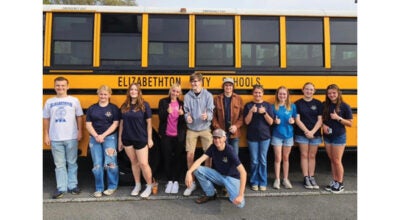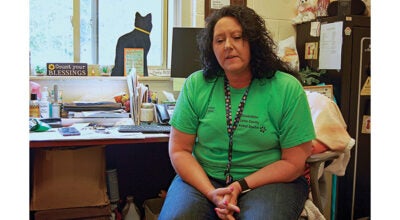Closing ‘retail gap’ could support more businesses in Elizabethton
Published 8:04 am Friday, July 11, 2014
Missing: 14 clothing and accessory stores. Eight home and garden stores. And 15 restaurants.
And that’s just a part of what might be missing because Carter County shoppers don’t stay home.
In fact, the city of Elizabethton could be losing out on as much as $147 million in retail sales to surrounding towns.
Director of Planning and Development Jon Hartman presented the results of Elizabethton’s retail gap analysis to the Downtown Business Association during its meeting Thursday morning. His report included some hefty numbers.
Hartman said the retail gap was determined by calculating how many retail dollars were being spent in Tennessee, then subtracting how much was actually spent in Elizabethton to determine what level of retail income could be seen in the area.
“It is adjusted based on the local economy and the population,” Hartman said. “The amount of the gap is money that is not coming to Elizabethton.”
The study looked at different retail areas to determine what kind of gap was present. The analysis also estimated how many additional retail establishments of a kind could be supported by the city.
Hartman said areas with the largest gap between collected retail and potential retail were clothing and accessory stores; home and garden stores; sporting goods, hobby and book stores; furniture and appliance stores; and electronic and appliance stores.
According the analysis, which used data from the 2007 U.S. Economic Census, Elizabethton could possibly support 14 additional clothing and accessory stores and had a retail gap of $16,546,000. A retail gap of $31,532,000 was in place in the home and garden retail division with a possibility for eight more retail locations being located in Elizabethton.
Two more sporting goods, hobby and book stores, along with furniture and home furnishing stores, could possibly operate in Elizabethton. A retail gap of $7,796,000 was found for sporting goods, hobbies and books and $7,184,000 for furniture. A possible $9,007,000 retail gap was found for electronics and appliance stores.
Other retail gaps divisions were:
• $37,370,000 in vehicle and motor dealers and auto parts. The analysis found another two of these type retail business could be supported in Elizabethton.
• $5,126,000 for pharmacies, cosmetics and beauty supply stores.
• $8,913,000 for department and general stores.
• $11,054,000 for online stores and direct selling establishments.
• $13,224,000 in restaurants and bars. The analysis also found an additional 15 restaurants or bars could locate in Elizabethton.
The analysis also included a map that detailed Elizabethton’s retail trade area and outlined which residents would have a 10-minute and 20-minute drive time to the city.
Inside the trade area is a population of 48,800 people in 21,125 households. The average household income is $40,178 in the trade area.
“It is important for businesses, and for the city, to know this information,” Hartman said. “When you do advertise, it is important to know where the customer base is, how many people there are and what their income is.”
Hartman explained that many times the retail gap occurred when people didn’t know where to get items locally, so they would travel to a nearby city where they knew they could find the good or service.
“There are two ways to close the gap,” Hartman said. “We could go out and recruit more retail businesses, or we can work with the local businesses and help them to build their own business and fill in these gaps in Elizabethton.”
He said it was better to work with existing businesses before starting the recruitment process. Hartman added that for businesses who already fall in one of those retail areas, improved advertising and marketing might be all it takes to let customers know the business is there.
“Business owners need to ask themselves ‘Do people know where I am?’” Hartman said.
He said there were simple steps businesses could take to increase their Internet presence so if someone searches for a business type, the local retail option would show up. He said businesses could create a Facebook page, make sure their business is included in Google maps and start a website detailing the business.
“This will help people know where a business is,” he said. “It is key for businesses to know this information. It can help make Elizabethton more of a retail destination. There will never be a zero retail gap, but we can work to make improvements.”
Carter County Tomorrow President Tom Anderson said the East Tennessee State University Small Business Alliance had agreed to come to Elizabethton to help business owners set up a web presence to help reach out to more customers. He said the date was still to be determined but the meeting would likely be held at the Coffee Company or the Elizabethton/Carter County Public Library.





